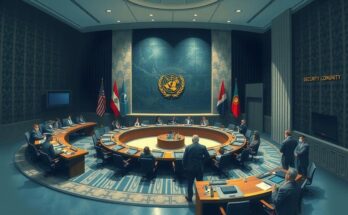Amnesty International demands justice and reparations for victims of violent protests in Senegal between 2021 and 2024, criticizing an amnesty law that shields security forces. The law has impeded accountability despite documented fatalities and injuries during the protests. Calls for repeal of this law have intensified, especially following electoral promises and the partial financial assistance provided to some victims.
Amnesty International has urged the Senegalese authorities to ensure justice, truth, and reparations for thousands of victims of violent repression during protests from 2021 to 2024. The call comes on the first anniversary of an amnesty law that protects security forces involved in potentially criminal actions during these events. The law, enacted on March 6, 2024, covers incidents linked to demonstrations occurring between February 1, 2021, and February 25, 2024.
The protests, initiated by the arrest of opposition leader Ousmane Sonko, saw security forces employing excessive force, leading to the death of at least 65 individuals, predominantly from gunfire, and leaving over 1,000 injured alongside approximately 2,000 arrests. Marceau Sivieude, Amnesty International’s interim regional director for West and Central Africa, emphasized the need for prosecution of security forces involved in these incidents, as the amnesty law obstructs the path to justice that the government promised to address.
Seydi Gassama, executive director of Amnesty International Senegal, acknowledged that the financial aid provided to some victims in 2024 was a positive step but argued that it does not suffice in fulfilling their quest for justice or ensuring non-recurrence of such violence. The authorities are urged to repeal the amnesty law to provide comprehensive justice for all who suffered human rights violations during these demonstrations.
Ousmane Sonko’s arrest in March 2021 sparked continuous protests that persisted for three years amid an ongoing judicial inquiry and perceived attempts by former President Macky Sall to seek a third term. In the lead-up to the early legislative elections in November 2024, Sonko vowed to repeal the amnesty law. Following the elections, where his parliamentary bled secured a significant victory, discussions around justice and accountability resumed.
In 2024, some victims received financial assistance from the Ministry of Family and Solidarities, which expanded in January 2025 to provide support to bereaved families and more victims of arbitrary detentions. Although this assistance was offered outside a formal judicial structure, it involved some consultation with civil society organizations, including Amnesty International. The organization continues to advocate against the amnesty law as part of its “Protect the Protest” campaign, emphasizing the right to peaceful assembly and free expression.
In summary, Amnesty International calls on Senegalese authorities to prioritize justice, truth, and reparations for victims of the violent protests from 2021 to 2024. The current amnesty law, protective of security forces, must be repealed to allow for accountability and healing. While financial assistance has been provided to some victims, it remains insufficient for comprehensive justice efforts. The ongoing advocacy for the repeal of the amnesty law is crucial in ensuring the protection of human rights and the integrity of peaceful protests in Senegal.
Original Source: www.amnesty.org




